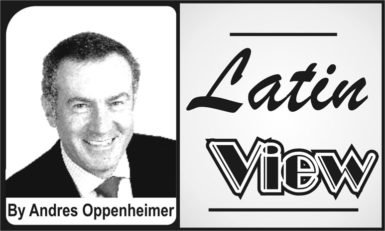Contrary to what former Democratic presidential hopeful Bernie Sanders and other members of the U.S. romantic left are saying, the impeachment of former Brazilian President Dilma Rousseff was not a coup. What is a coup — and one they are conveniently ignoring — is the break of the rule of law by Venezuela’s regime.

Sanders, echoing the claims by the presidents of Venezuela, Bolivia, Ecuador and Nicaragua, said in an Aug. 8 statement that Brazil’s impeachment process “resembles a coup d’etat.” He added, “The effort to remove President Rousseff is not a legal trial but rather a political one. The United States cannot sit silently while the democratic institutions of one of our most important allies are undermined.”

But was it really a coup, or even a disguised coup? A coup usually involves a military takeover, or another way to take power breaking the rule of law. The Merriam-Webster dictionary says a coup d’etat is “a sudden attempt by a small group of people to take over the government usually through violence.”
What happened to Rousseff doesn’t apply to any definition of a coup, not even remotely. On the contrary, Rousseff’s congressional impeachment process followed all the judicial and legislative steps demanded by Brazil’s Constitution, including her right to publicly defend herself during her Senate hearing.
As former Brazilian President Fernando Henrique Cardoso, the architect of Brazil’s economic recovery in recent decades, told me in an interview this week, “there wasn’t any coup. The Brazilian Constitution is very clear in stating that if the president violates budget laws and makes expenditures without congressional approval, that’s a crime.”
Jose Miguel Vivanco, head of the Americas’ department of the Human Rights Watch advocacy group, agrees. “We have not called this a coup, nor will we,” he said.
Some political scientists even describe Rousseff’s ouster as a sign of democratic maturity, the very opposite of a coup.
“Impeachment is healthy because it is the presidential equivalent of a parliamentary vote of no confidence,” writes political scientist John Polga-Hecimovich in LatinAmericagoesglobal.org. “Even highly politicized processes like Brazil’s are an improvement over the coup-mongering politics of old.”
Bernie, I’ll tell you what a coup is. A coup is what Chilean dictator Augusto Pinochet did in 1973, what Argentina’s rightist military did in 1976, what Venezuelan Army officer Hugo Chavez tried to do in 1992 and what Venezuelan President Nicolas Maduro is doing right now.
Maduro, who won a controversial election in 2013, has illegally packed the supreme court with loyalists, filled his cabinet with army generals, imprisoned opposition leaders such as Leopoldo Lopez, intimidated independent media, and now is using his supreme court to invalidate the laws passed by his country’s opposition-controlled congress. That’s breaking the rule of law, the very definition of a coup.
And now, Maduro is resorting to repression and legal technicalities to deny the opposition its constitutional right to gather the 4 million signatures needed to convene a recall referendum that would force early elections. Polls show about 80 percent of Venezuelans would vote for Maduro’s ouster.
Sanders and his friends who are calling what happened in Brazil a “coup” are misdirecting their indignation. Instead of looking at the constitutional process that took place in Brazil, they should be denouncing the blatantly unconstitutional process that is taking place in Venezuela.
There should be no double standards when it comes to coups. (I have probably made countless mistakes in my journalistic career, but I’m proud to have denounced all coups regardless of their political colour, including the 2002 coup attempt against late Venezuelan President Chavez.)
What happened in Brazil was not a coup. What’s happening in Venezuela is a clear and increasingly bloody, slow-motion coup.





